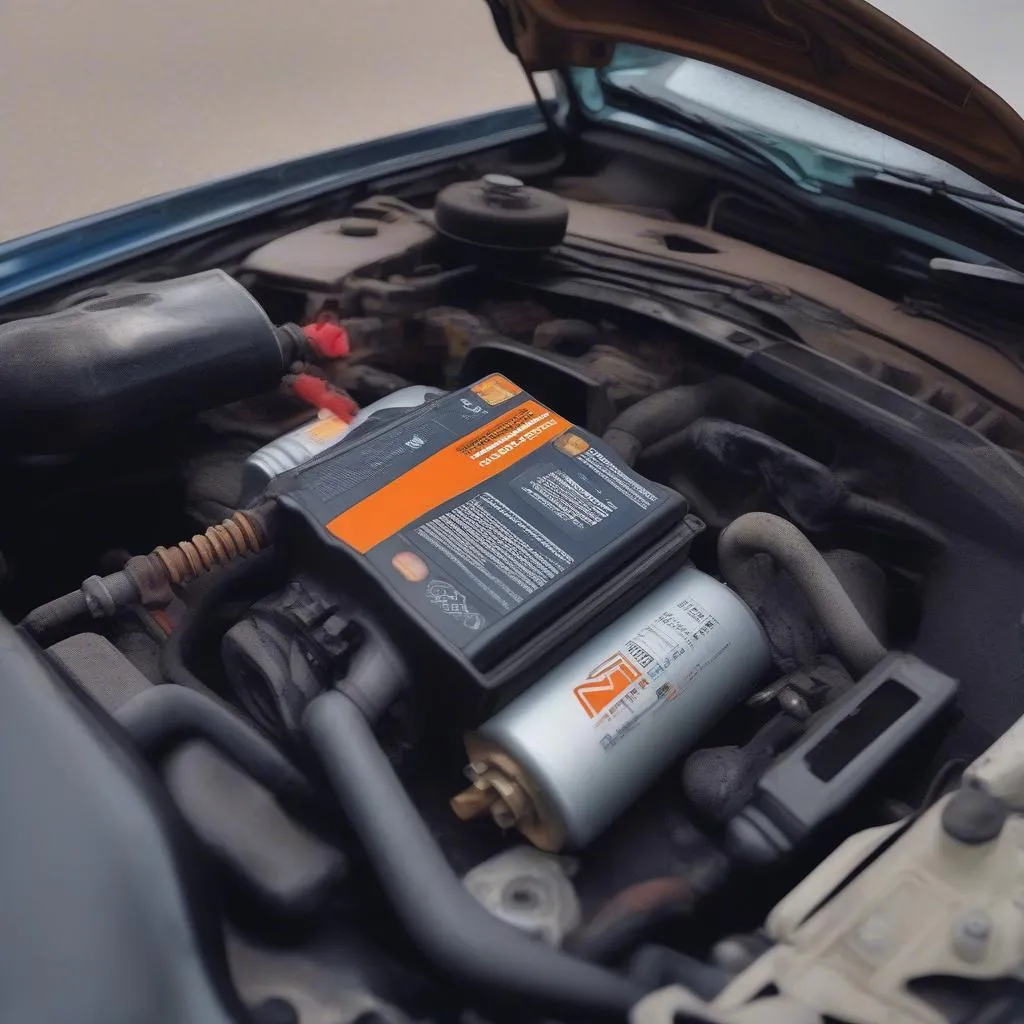Have you ever had that frustrating experience where your car starts one day, but the next day it just won’t turn over? It’s a common problem that can leave you stranded and wondering what went wrong. Many factors can lead to this intermittent starting problem, but don’t worry, we’ll break down the most common culprits and provide troubleshooting tips to help you get your car running smoothly again.
Understanding The Problem
Imagine this: you’re rushing to work on a Monday morning, turn the key, and nothing. The car just sits there, silent. You try again, and this time, the engine roars to life. But the next day, you’re back to square one. This is a frustrating issue faced by car owners worldwide, and it’s important to understand the underlying reasons to find a solution.
Why Your Car Starts Sometimes but Not Others:
There are several reasons why your car might start intermittently. These can be grouped into a few main categories:
1. Battery Issues:
- Battery: A weak battery can cause your car to start sometimes but not others. This is because it may have enough power to start the engine on a cold day, but not when the battery is hot or has been sitting for a while.
- Troubleshooting Tip: If your car is starting intermittently, check the battery terminals for corrosion. You can also try jumping the battery with another vehicle. If the car starts right away, your battery might be the culprit.
- Starter: A faulty starter can cause starting problems, as it’s the key component responsible for turning the engine over.
- Troubleshooting Tip: Listen carefully for any clicking sounds when you turn the key. Clicking usually indicates a faulty starter, but it’s always best to consult with a mechanic to confirm.
2. Ignition System Problems:
- Ignition Switch: A worn-out or faulty ignition switch can prevent the starter from receiving power.
- Troubleshooting Tip: If the key feels loose or you hear clicking sounds when you turn it, the ignition switch might be faulty.
- Ignition Coil: The ignition coil is responsible for sending a spark to the spark plugs to ignite the fuel. A faulty coil can lead to misfiring, which may cause your car to start sometimes but not others.
- Troubleshooting Tip: Check the ignition coil for signs of damage, such as cracks or overheating. You can also consult a mechanic for a comprehensive inspection.
3. Fuel System Issues:
- Fuel Pump: A failing fuel pump can’t deliver enough fuel to the engine, which can lead to starting problems.
- Troubleshooting Tip: Listen for the fuel pump running when you turn the key to the “on” position. If you don’t hear the pump humming, it could be a sign of a failing fuel pump.
- Fuel Filter: A clogged fuel filter can restrict fuel flow, preventing the engine from getting the necessary amount of fuel.
- Troubleshooting Tip: If your car is starting intermittently and you haven’t changed the fuel filter recently, it’s worth checking it. A clogged filter can be easily replaced.
4. Engine Problems:
- Engine Sensors: Various sensors in the engine, such as the crankshaft position sensor or the camshaft position sensor, play a crucial role in determining the timing of ignition. A faulty sensor can cause starting problems.
- Troubleshooting Tip: If you suspect an engine sensor is failing, it’s best to consult a mechanic for a diagnosis.
It’s Not Always Easy:
Sometimes, the solution is less straightforward. For instance, the problem could be a wiring issue, a faulty relay, or even a clogged fuel line. It’s always best to consult a qualified mechanic for a proper diagnosis, especially if you’re not comfortable performing these repairs yourself.
A Real-World Example:
“My car started fine one morning, but it just wouldn’t turn over the next day. I was running late for work, and I had no idea what was wrong. After checking the battery terminals and making sure the fuel pump was running, I suspected the starter. Luckily, I was able to get a jump start from a neighbor, but it was a stressful experience. Later, I found out that it was a faulty starter motor, and getting it replaced solved the problem.”
Common Questions Asked by Car Owners:
Q: How can I tell if it’s a battery or a starter problem?
A: If your car clicks but doesn’t turn over, it’s likely a starter problem. If the battery is dead or weak, you won’t hear any clicking sounds at all.
Q: Can I try jump-starting my car to rule out a battery problem?
A: Yes, jump-starting your car is a good way to temporarily rule out a battery issue. However, if the problem persists, you’ll need to have the battery tested by a mechanic.
Q: How often should I change my fuel filter?
A: Generally, you should change your fuel filter every 12,000 to 15,000 miles.
Q: What are some other signs that my car needs a new battery?
A: A slow crank, dimming headlights, and trouble starting in cold weather are all signs that your car battery might be nearing the end of its life.
Looking For More Information?
Our website has plenty of articles about common car problems and how to troubleshoot them:
Need Expert Help?
At DiagXCar, we offer a range of diagnostics tools and expert advice for car owners. If you need help troubleshooting your car, feel free to contact our team through Whatsapp at +84767531508. We’re available 24/7 to answer your questions.
 Engine Problems Battery Starter
Engine Problems Battery Starter
Remember, regular maintenance and timely repairs can help prevent serious issues from arising. We’re here to help you keep your car running smoothly!